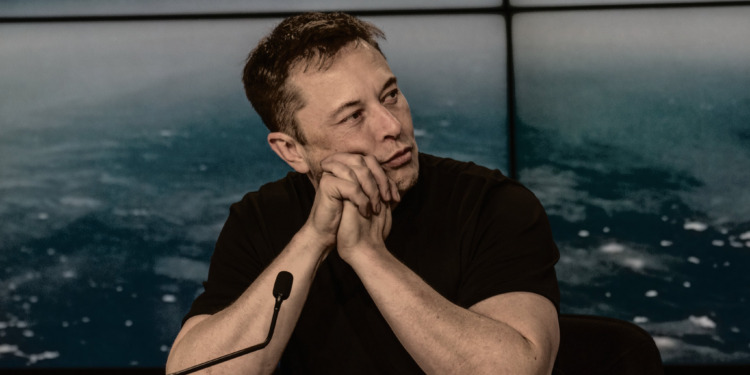On Friday, Elon Musk announced his intention to abandon his $44 billion deal to buy Twitter. If Musk does not pull through with the deal, Twitter said it would sue him, asking for $1 billion.
In announcing his intentions to back out of the deal, Musk stated his reason for doing so was the lack of information provided by Twitter on the number of fake accounts.
As of now, the breakup agreement appears to be a backup plan with CEO Parag Agrawal insisting on consummating the deal.
Musk states Twitter broke the merger agreement
Musk announced Friday that he would back out of the $44 billion deal because Twitter failed on their part to provide enough information about the number of fake accounts on the social media app.
According to a letter sent by Musk’s lawyer, Mike Ringler, to Twitter’s board, for nearly two months his client sought out data to judge the frequency of “fake or spam” accounts on Twitter.
“Twitter has failed or refused to provide this information,” the letter said. “Sometimes Twitter has ignored Mr. Musk’s requests, sometimes it has rejected them for reasons that appear to be unjustified, and sometimes it has claimed to comply while giving Mr. Musk incomplete or unusable information.”
Musk emphasized the information is essential to analyzing Twitter’s financial and business performance and is needed in order to complete the merger agreement.
In response to Musk and his lawyer, the chair of Twitter’s board, Bret Taylor, said in a tweet that the board is “committed to closing the transaction on the price and terms agreed upon,” and “plans to pursue legal action to enforce the merger agreement.”
The Twitter Board is committed to closing the transaction on the price and terms agreed upon with Mr. Musk and plans to pursue legal action to enforce the merger agreement. We are confident we will prevail in the Delaware Court of Chancery.
— Bret Taylor (@btaylor) July 8, 2022
On Thursday, Twitter sought to clarify how they locate and count spam accounts mentioning they remove roughly 1 million spam accounts each day — which accounts for 5% of their total active users in a quarter.
In order to locate and delete spam accounts, Twitter said it reviews thousands of accounts sampled at random. Using both public and private data, spam accounts are located through IP addresses, phone numbers, location and account behavior to assess whether the account is real or fake.
One of the primary reasons Musk bought the company was to make the company private in order to “reinvent’ the app and also dispose of spam bots. Now it appears he is using the problem to get out of the deal.
Christopher Bouzy, founder of research firm Bot Sentinel (used to track spam accounts on Twitter), mentioned pulling out of the deal is strange now since Musk knew of the spam account problem beforehand.
“This whole process has been bizarre,” said Bouzy. “He knew about this problem. It’s odd that he would use bots and trolls and inauthentic accounts as a way of getting out of the deal.”
Yet Bouzy mentioned Twitter has lacked transparency with Musk during their dealings as well, even stating he thought they were hiding something about the real number of spam accounts.
Musks lawyers also claimed Twitter broke the initial merger agreement when they fired two top managers and laid off a third of its talent-acquisition team.
In order to get out of the merger agreement without facing repercussions, Musk will have to prove Twitter breached the original deal.
Yet a lawsuit is already underway
According to Bloomberg, as of Sunday night Twitter had already assembled a legal team to sue Musk and is expected to file a lawsuit in Delaware on Monday.
Once filed, the company has several ways to make Musk comply under the terms of the merger agreement.
Firstly, Twitter can call for “specific performance” which would require Musk to buy the company for the previously agreed-upon $54.20 a share. Twitter could also seek a $1 billion break fee from Musk for walking away from the merger agreement.
In retaliation, Musk could argue three things: (1) Twitter broke the agreement after failing to provide enough information on spam accounts (2) Twitter had failed to disclose the accurate number of spam accounts on the platform and (3) the company fired senior administration without consulting Musk further breaching the agreement.
Despite the arguments, legal experts believe it is unlikely the Delaware court will see the disclosure of spam accounts as a valid excuse for a violation of the merger agreement — especially as the Delaware court has a history of siding with companies in the past.
Previously, the Delaware court stated its views on MAEs (material adverse effects) as dramatic events that end up negatively impacting a company’s performance.
Because of the complicated nature of MAEs, a judge of the Delaware court even mentioned MAE cases similar to Musk and Twitter’s case have only been triggered once in history — back in 2018 when German healthcare group Fresenius Kabi AG ended its deal U.S. generic drugmaker’s Akorn Inc.
Twitter’s shares fall as merger agreement treks on
Amidst the chaos of the merger agreement, on Friday shares of Twitter fell 5% to $38.81 — Musk previously agreeing to pay $54.20 per share.
Meanwhile, shares of Tesla have increased by 2.4% to $752.29, which continued to rise as markets closed Friday. As predicted, on Monday morning Twitter shares fell to $34.21 —dropping $4.00 more over the weekend.
With the Twitter board facing growing concern over falling share prices, Musk suggested paying a lower price per share in compensation for the lack of disclosure of fake accounts. However, according to the legal terms of the agreement, lowering his initial purchase price of $54.20 per share is unlikely.
If the breakup agreement does end up going through, many warn the damage would be more costly to Twitter itself than Musk. Analysts warn the breakup could devalue the social media app and ruin chances of new buyers seeking purchase.
The merger agreement has not been taken up in court yet, but will most likely come to court in the next few days as a lawsuit is already in the making.
Despite the merger agreement still being up in the air — as of now — the once imagined future of a “free speech” Twitter seems to be grim.
Editor’s Note: The opinions expressed here by Impakter.com columnists are their own, not those of Impakter.com. — In the Featured Photo: Elon Musk at Space X press conference on February 6, 2018. Source: Daniel Oberhaus, Wikimedia.










